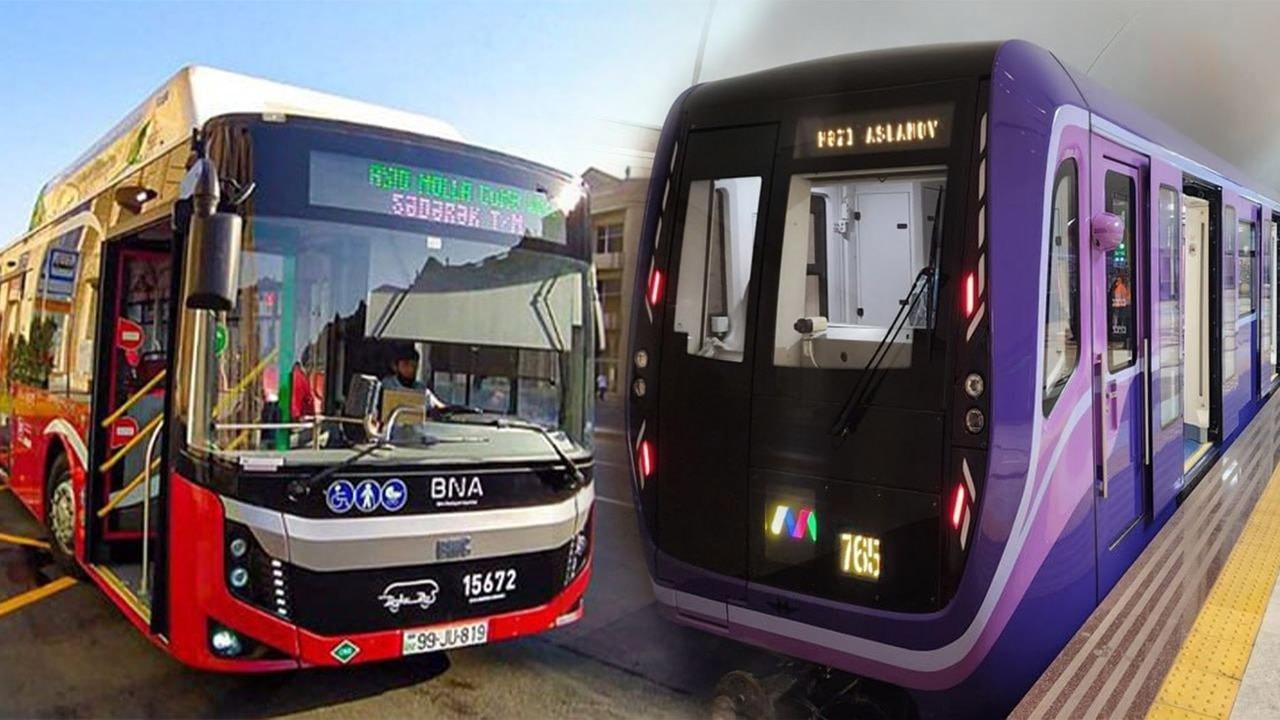BAKU, Azerbaijan, September 29. Azerbaijan has introduced new tariffs for metro and bus services as part of its ongoing efforts to modernize public transportation, Trend reports.
The changes are in line with the "State Program on Improving Transport Infrastructure in Baku and Surrounding Areas for 2025–2030," which aims to gradually implement measures across the sector.
Significant steps under the program include upgrading transport infrastructure, constructing new metro stations, acquiring modern metro cars and electric buses, and developing depots, garages, energy supply, and electric charging networks to support these vehicles.
To ensure consistently high-quality public transport services and establish a sustainable financing mechanism for renewing the bus fleet, President Ilham Aliyev recently signed a decree outlining measures to improve regular passenger transportation by road. This decree is expected to accelerate the modernization of the bus fleet and enhance the overall quality of passenger services.
Bus
Private transport companies are hitting the ground running by rolling out modern buses across the country, embracing environmentally friendly technologies like electric power and compressed natural gas (CNG) to keep the wheels turning smoothly. Under the State Program, both Baku and various regions across the country are being supplied with these new buses.
The modernization push has already rolled out in cities like Ganja, where the bus fleet has been fully updated. A newly opened bus depot now hosts 244 modern, comfortable vehicles, with numbers expected to rise further (to 280) by the end of 2025.
In 2025, roughly 100 eco-friendly buses hit the road in the capital, with plans to ramp up that number to 400 by year’s end. The modernization effort also extended to Sumgayit city and the Absheron region, where 85 modern buses have been deployed for passenger service.
In addition, 60 electric buses are scheduled for delivery to Nakhchivan before the end of the year. The initiative is also progressing in the liberated territories. As part of the "Great Return" plan, the cities of Lachin, Khankendi, Jabrayil, and Agdam will be the first to receive electric buses. These vehicles are already being imported, and a dedicated depot is being prepared to accommodate them.
Overall, within the framework of the ongoing efforts, 143 electric buses are planned to be commissioned for intra-city and intra-district routes in the liberated territories by the end of 2026, while 19 buses will serve inter-city and inter-district transportation.
Metro
The country is taking important steps under the State Program to expand the capital’s metro. Currently, the design work for 10 new stations is nearing completion. According to the plan, the construction of these stations is scheduled to be completed on time, with one new station planned to open for passengers in 2026.
The wheels keep turning on the effort to refresh the metro’s wagon fleet, moving along without a hitch. Recently, 65 new wagons have been purchased, 35 of which are already in operation. The remaining 30 wagons are expected to be put into service during the current year. By 2030, an additional 299 new-generation wagons are planned to be acquired and deployed across metro lines.
Tariff Decision
To ensure continuity in passenger transport services and achieve the objectives of the State Program amid growing demand for quality public transport, new tariff regulations have been approved:
The metro passenger fare is set at 60 kopecks per trip ($0.35).
The minimum fare for regular intra-city (intra-district), inter-settlement, and suburban bus routes that meet modern standards and operate only via cashless payment instruments is 60 kopecks ($0.35), with variations depending on distance.
These tariffs will come into effect on October 1, 2025.
The new fares apply to intra-city, suburban, and inter-settlement bus routes in Baku where payments are made exclusively through cashless instruments, as well as to buses powered by electricity or compressed natural gas (CNG). Initially, this change will cover approximately 30 percent of the capital’s existing route network that meets these requirements, while routes that do not meet the standards will not be affected.
The tariff change will also apply to regular bus routes connecting Baku-Sumgayit, Baku-Absheron, Sumgayit-Absheron, and other cities and regions. This applies to buses powered by electricity, CNG, or diesel manufactured after January 1, 2025, where fares are paid only through cashless payment instruments.
The tweak is set to bolster the financial backbone of carriers, speed up the refresh of the bus fleet, with about 400 shiny new buses on the horizon each year, guarantee hassle-free payment options for passengers, champion eco-friendly buses, and shine a light on transparency in public transport.
Additionally, carriers will be encouraged to transition to cashless payment systems, creating conditions for implementing differential tariffs and developing the technical capacity for advanced fare management.
Stay up-to-date with more news on Trend News Agency's WhatsApp channel







